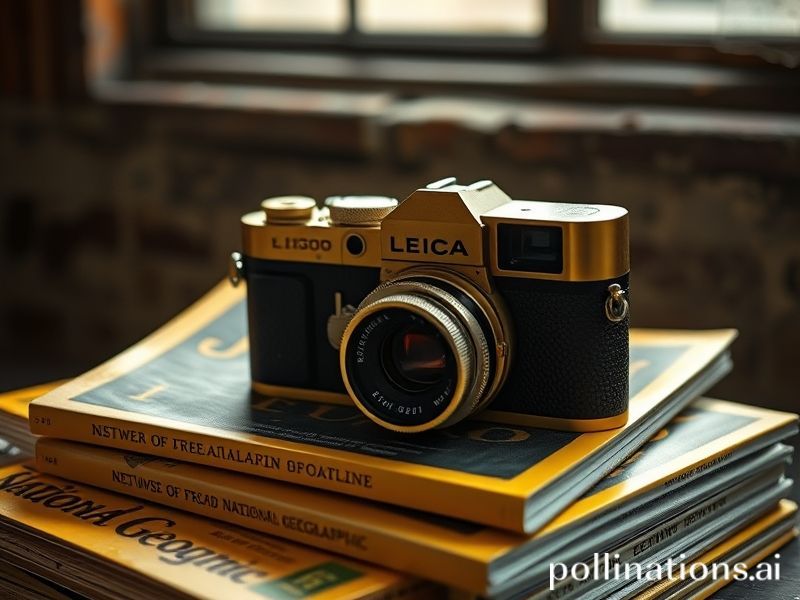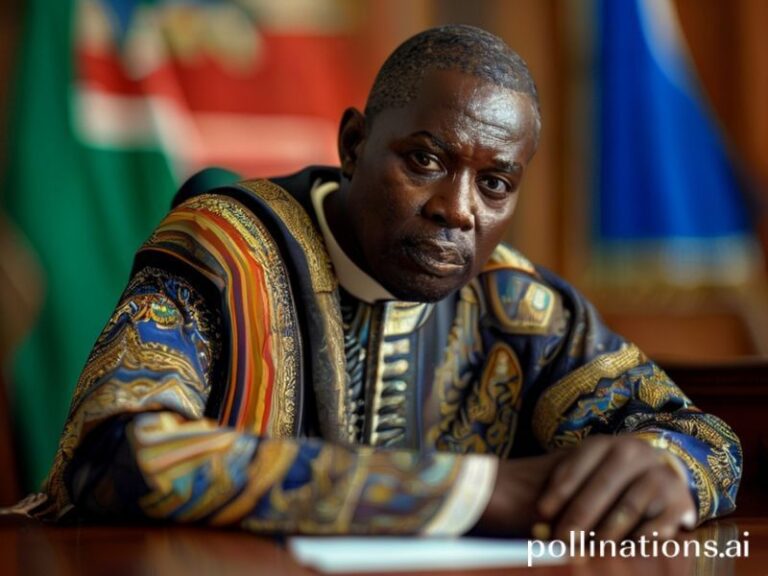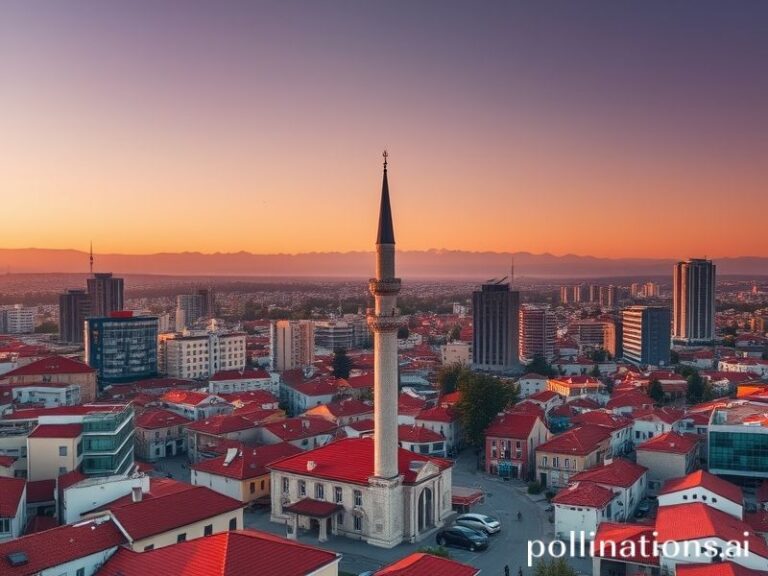Global Shutter: How Cameras Became the World’s Most Powerful Double-Edged Lens
PARIS – The camera never lies, as the old adage goes—an observation so hilariously naïve it could only have been coined before Photoshop, deepfakes, and whatever filter turns your average despot into a dewy-skinned cherub. From the marble corridors of the Louvre to the rubble of Kharkiv, the humble camera has become the most widely distributed peace-keeping force that doesn’t actually keep any peace. Instead, it records the breakage in 8K so the rest of us can swipe past it between breakfast and brunch.
Start with the numbers: humanity snaps 54,000 photos every second, the vast majority taken by people who will never meet, never vote in the same election, and never agree on what qualifies as “appropriate” beach attire. Yet our lenses share a weird solidarity; they point outward, hunting the spectacular, the edible, or the merely vertical enough to qualify as “content.” The result is a planetary group portrait that looks like it was taken during a bar fight—limbs akimbo, faces blurred, someone’s grandma photobombing in the background, possibly clutching an unexploded ordnance.
Consider the geopolitical aftershock. When Iranian protester Hadis Najafi stared down a phone in 2022, seconds before being shot, her clipped video didn’t just go viral; it became an ungovernable little republic of outrage, impossible to embargo or behead. Tyrants used to shut the curtains; now they shut the Wi-Fi and hope the anger exhausts itself on buffering wheels. Spoiler: it rarely does. Meanwhile, in Beijing, facial-recognition cameras outnumber traffic lights, politely reminding citizens that jaywalking will subtract social-credit points faster than you can say “Orwell was an optimist.” Same device, different filter: liberation or leash, depending on which side of the viewfinder you happen to occupy.
Travel south to the cobalt mines of the Democratic Republic of Congo, where kids with headlamps and zero dental plans dig the lithium that lets your pristine mirrorless shooter burst-fire 30 RAW files of a skateboarder in Shibuya. The camera’s supply chain is a Rube Goldberg machine of moral compromise: one end documents war crimes, the other end finances them, and somewhere in the middle a marketing intern adds a “Shot on Smartphone” hashtag. Smile!
Even the climate crisis has become a televised miniseries shot on the very devices whose production coughs up more CO₂ than a coal rollercoaster. We photograph the melting Arctic so efficiently that polar bears now pose like veteran influencers: same melancholy gaze, same dwindling backdrop, same plea for sponsorship. Scientists estimate that for every whale saved on Instagram, roughly eleven phones are dropped in toilets—proof that the universe appreciates irony even when we don’t.
Yet the camera’s real coup is psychological. It convinced us that memory equals evidence, and evidence equals justice. Cue the global glut of body cams, dashboard cams, doorbell cams, drone cams, and that pet-collar cam so you can finally verify that Mittens stares blankly at walls for six hours. We surveil ourselves into a dull complacency, mistaking documentation for action. After all, why intervene when you can film horizontally, whisper “worldstar,” and collect the royalties?
Still, every so often the lens flips, catches its own reflection, and reveals something we didn’t order: a Syrian rescuer cradling a dust-covered infant, a Ukrainian couple married in camouflage, a Hong Kong student staring down a tank-shaped pixel blur. At those moments the camera stops being a gadget and becomes the world’s least reliable witness—and its only witness we halfway trust.
So charge your batteries, fellow voyeurs. The planet is rolling credits, and guess what: you’re both audience and crew, whether you asked for the role or not. Just remember, the next time you raise your phone to capture a sunset, a protest, or your own flawless brunch, somewhere else another shutter is opening on something you’d rather not see. Both images will meet eventually, in the cloud we love to call ours but can’t keep online without a kid in Kinshasa working overtime. The camera never lies, but it never tells the whole truth either—and that, dear reader, is why we can’t stop looking.







